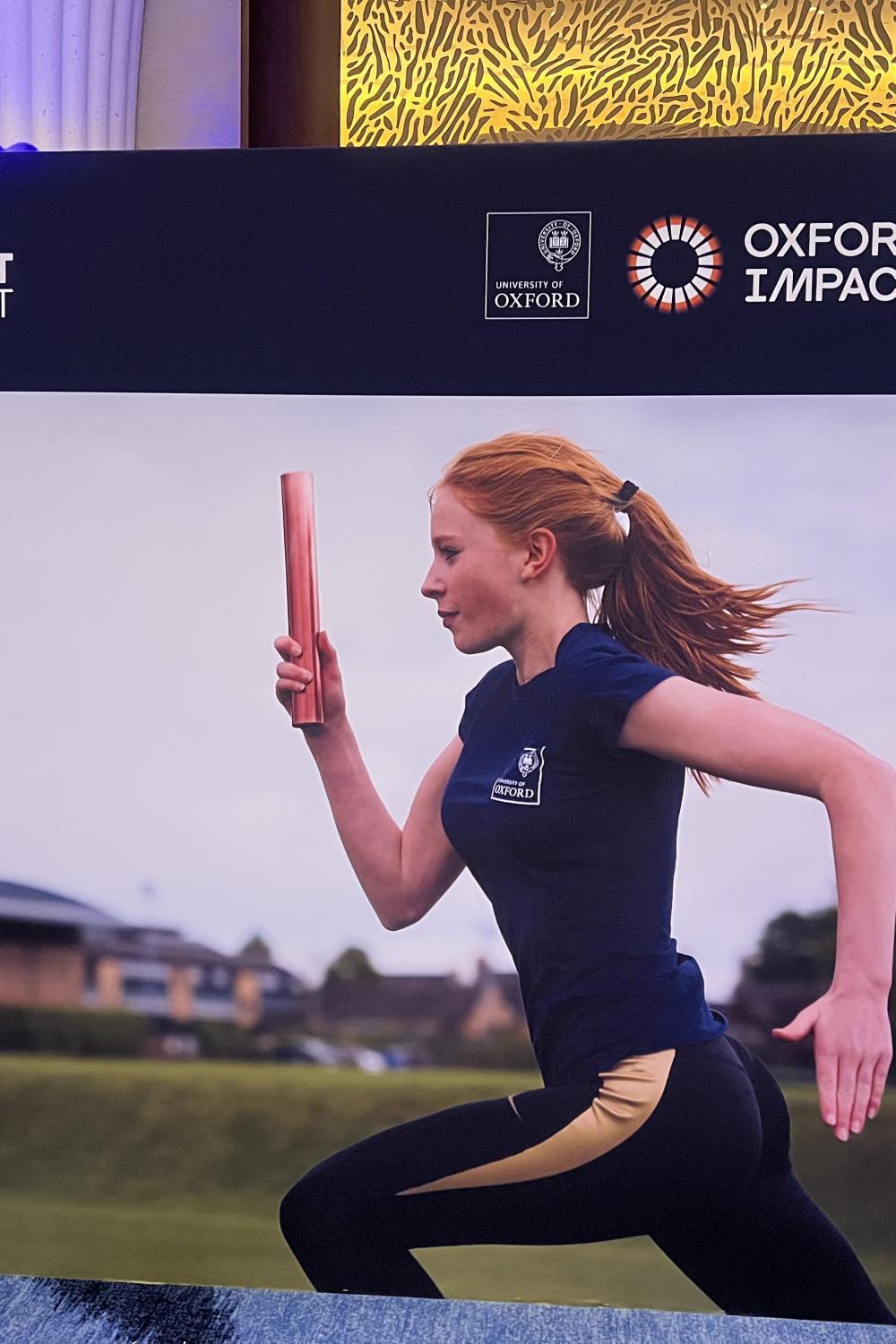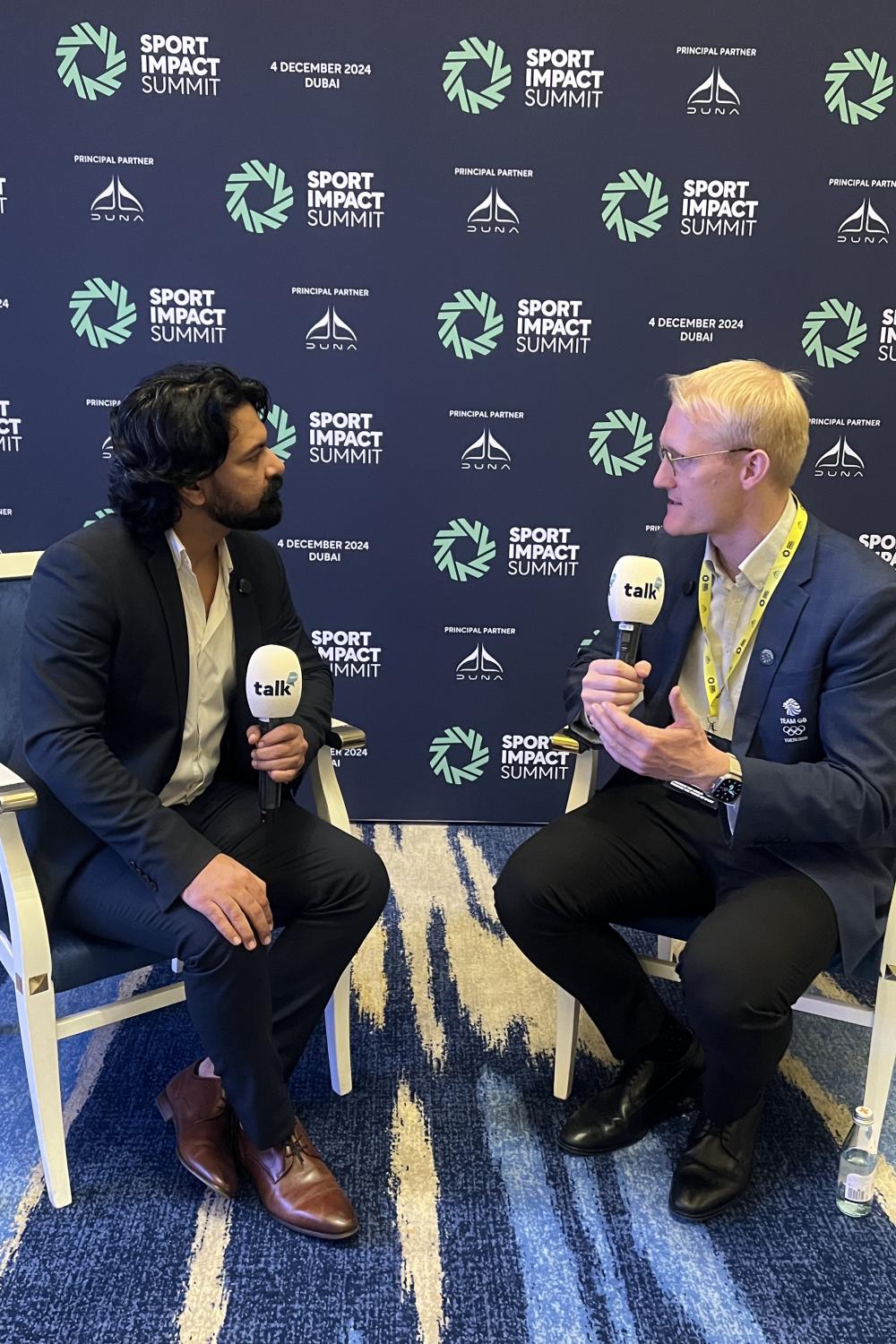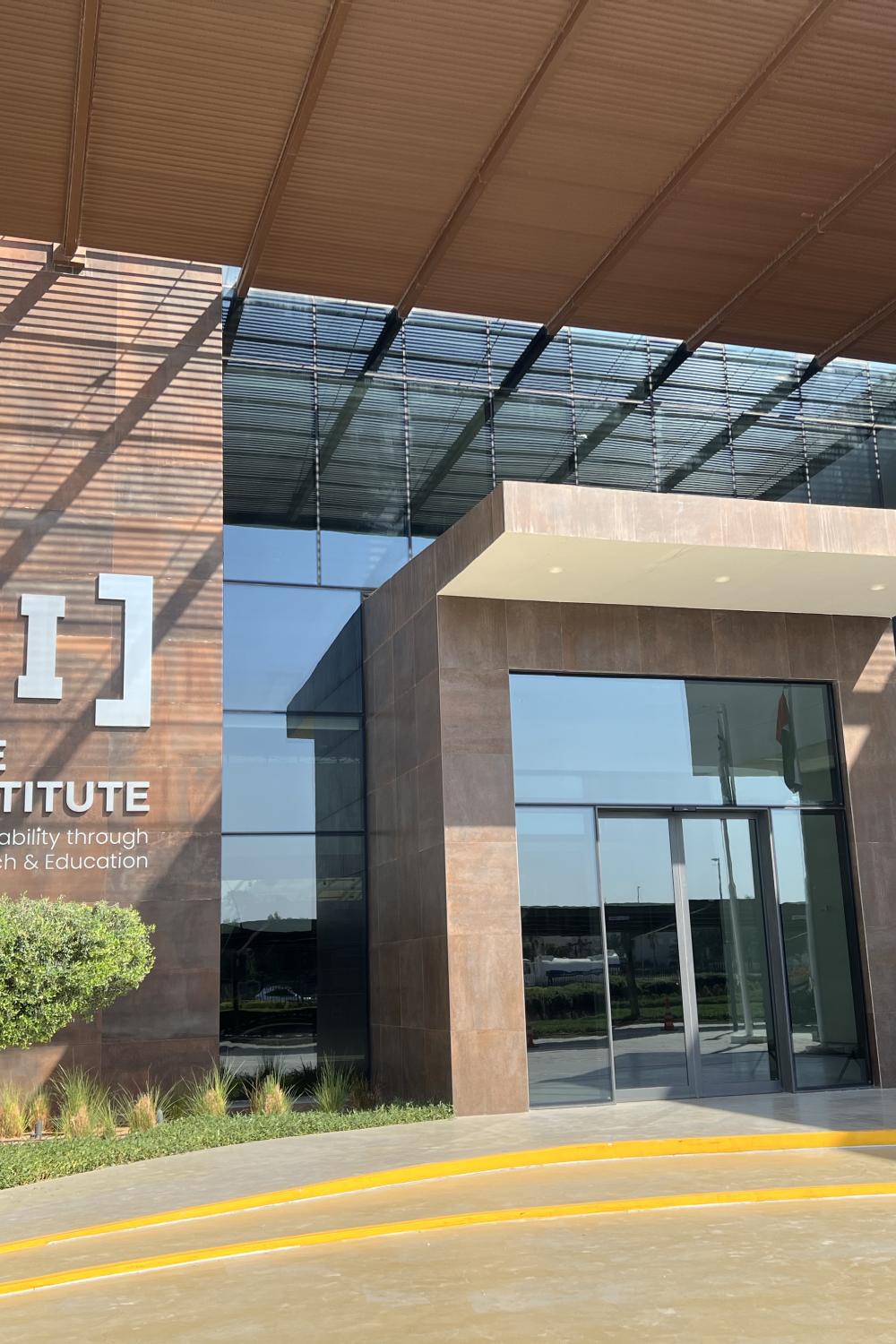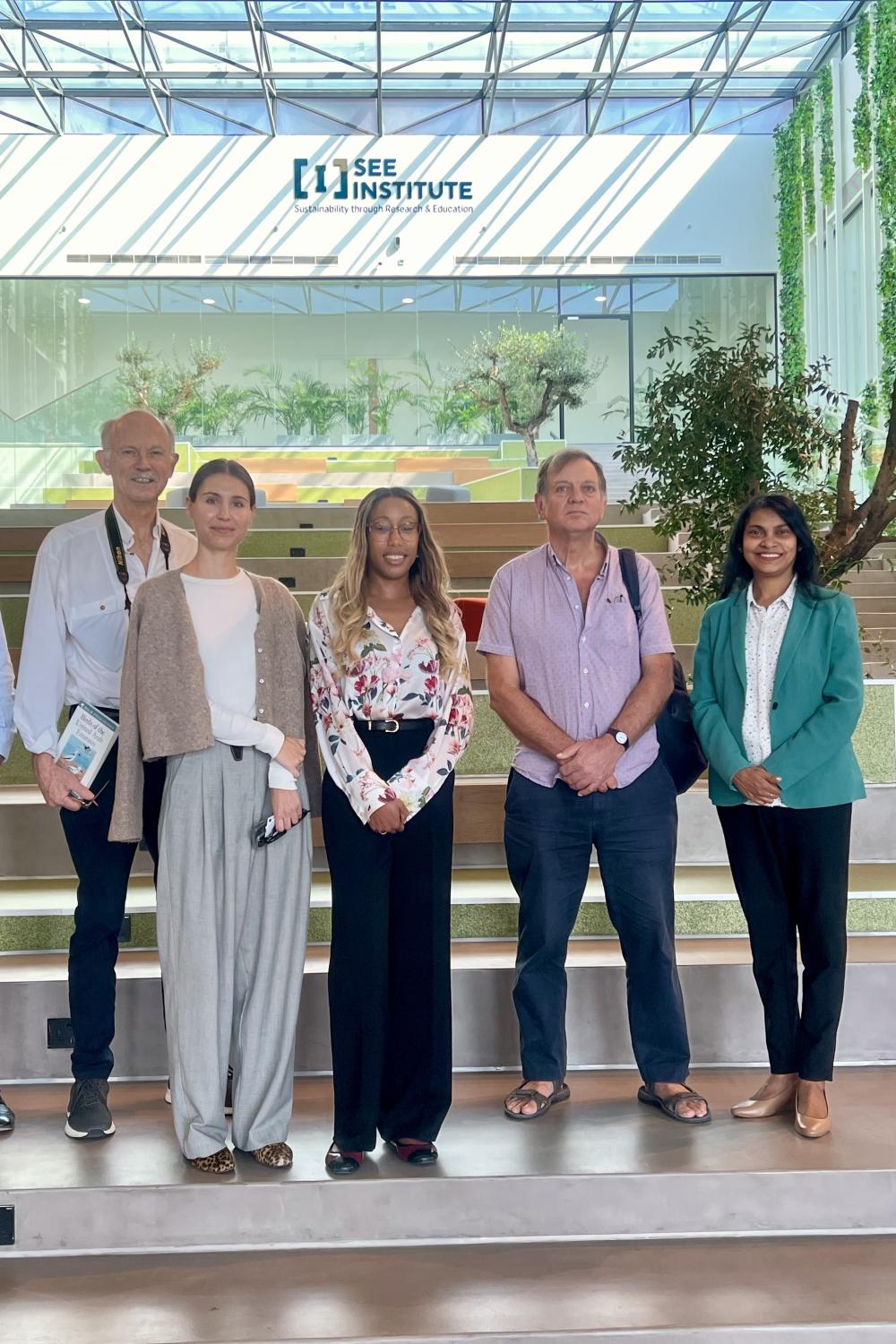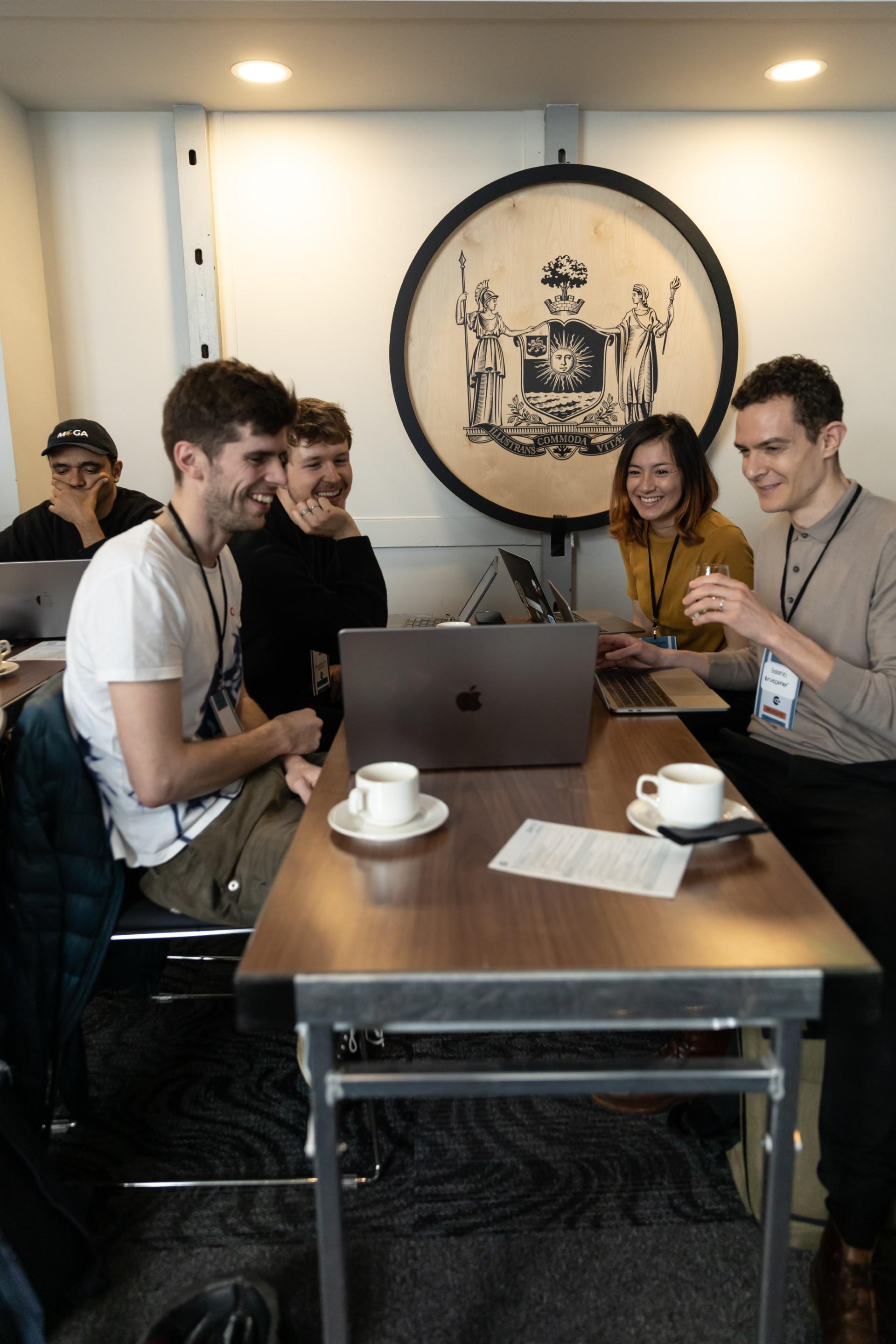Sport Impact Summit
The Sport Impact Summit, held on 4th December 2024 at Atlantis, The Palm Dubai, was a pioneering new conference designed to showcase how sport can address global challenges like climate action, health, and sustainability. The Oxford SDG Impact Lab was proudly represented by Oliver Cook, Varun Shanker, and Kerri Louise Howard-Slaughter, alongside colleagues from the Environmental Change Institute (ECI).
With over 200 global leaders, innovators, and changemakers in attendance, the Summit showcased a range of innovative solutions, such as partnerships in Formula One and the ATP Tour to Sail GP and sustainable clothing, alongside industry leaders and world class athletes.
On 3rd December, delegates, including key stakeholders participated in a Mangrove Planting Ceremony at the Emirates Marine Environmental Group Reserve, organised by Goumbook, the UAE’s leading social enterprise for sustainability. Everyone planted mangrove saplings as part of Goumbook’s “Trees Matter” campaign, which highlights mangroves' critical role in mitigating climate change, preventing coastal erosion, and fostering biodiversity.
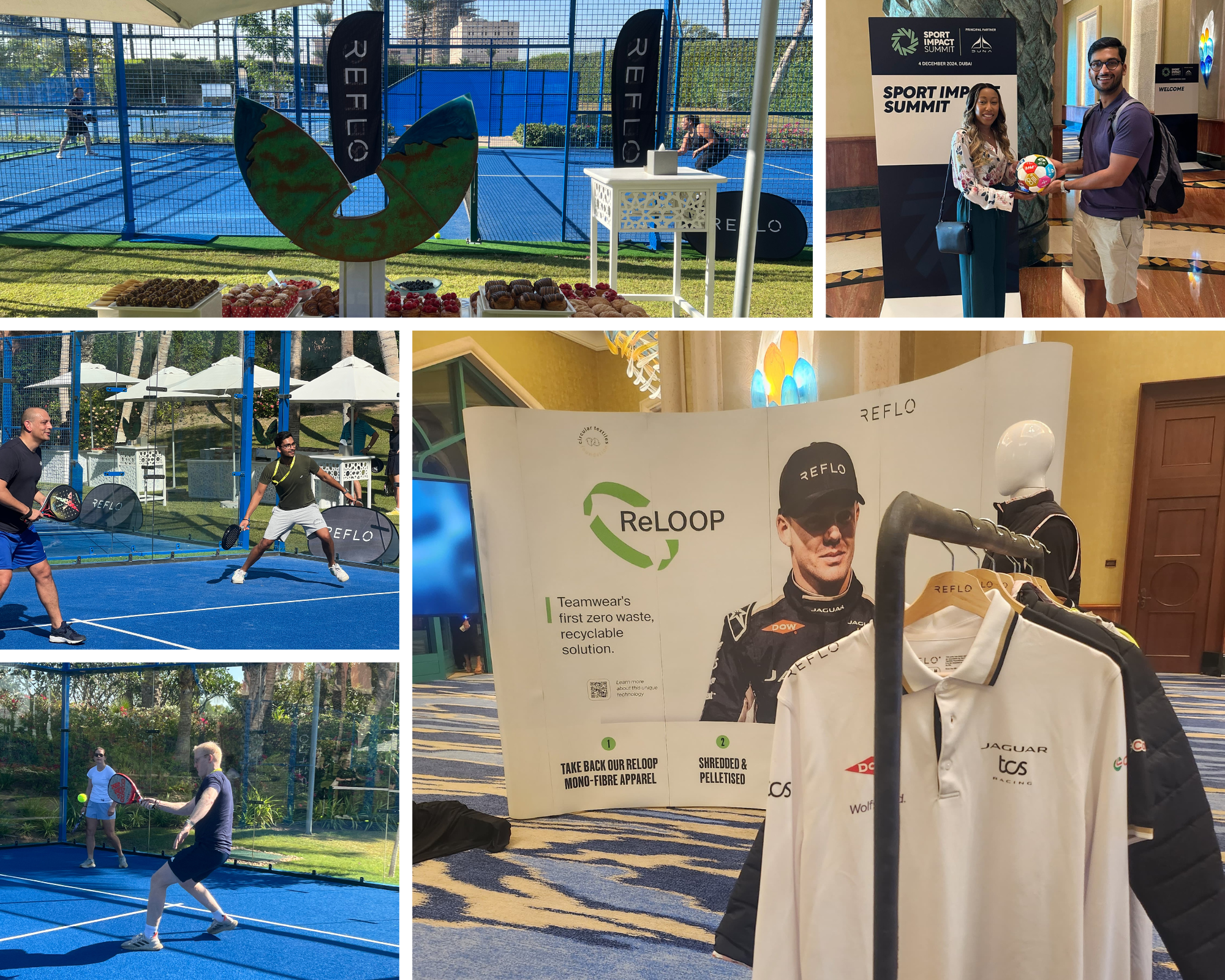
The Summit Day kicked off with the Sport Impact Summit Padel Exhibition, hosted by Reflo, a sustainability-focused sportswear brand. Oliver and Varun—both new to the sport—were given coaching before being unleashed onto the court...the jury is still out on whether they should stick to water sports. It was great to see Reflo’s sportswear in action, the pre-Summit sports session set the energetic tone for the day and showcased how one sustainable innovation in sports wear can inspire meaningful environmental change.
The morning continued with the UAE Ministry of Sport Masterclass, hosted by HE Dr Ahmad Belhoul Al Falasi, UAE Minister of Sport which brought together the Lab, Dr John Ingram and Ian Curtis Environmental Change Institute (ECI), Mark Spelman (Accenture), and Sean Morris (Sport Impact Summit). This session offered actionable strategies for embedding sustainability into organisational and sporting frameworks. Mark Spelman’s insights into systemic thinking for a sustainable future aligned with the masterclass’s core themes, while Ian Curtis and John Ingram enriched discussions with their expertise in food systems and environmental sustainability. Attendees left inspired and equipped to implement impactful sustainability initiatives within their industries.
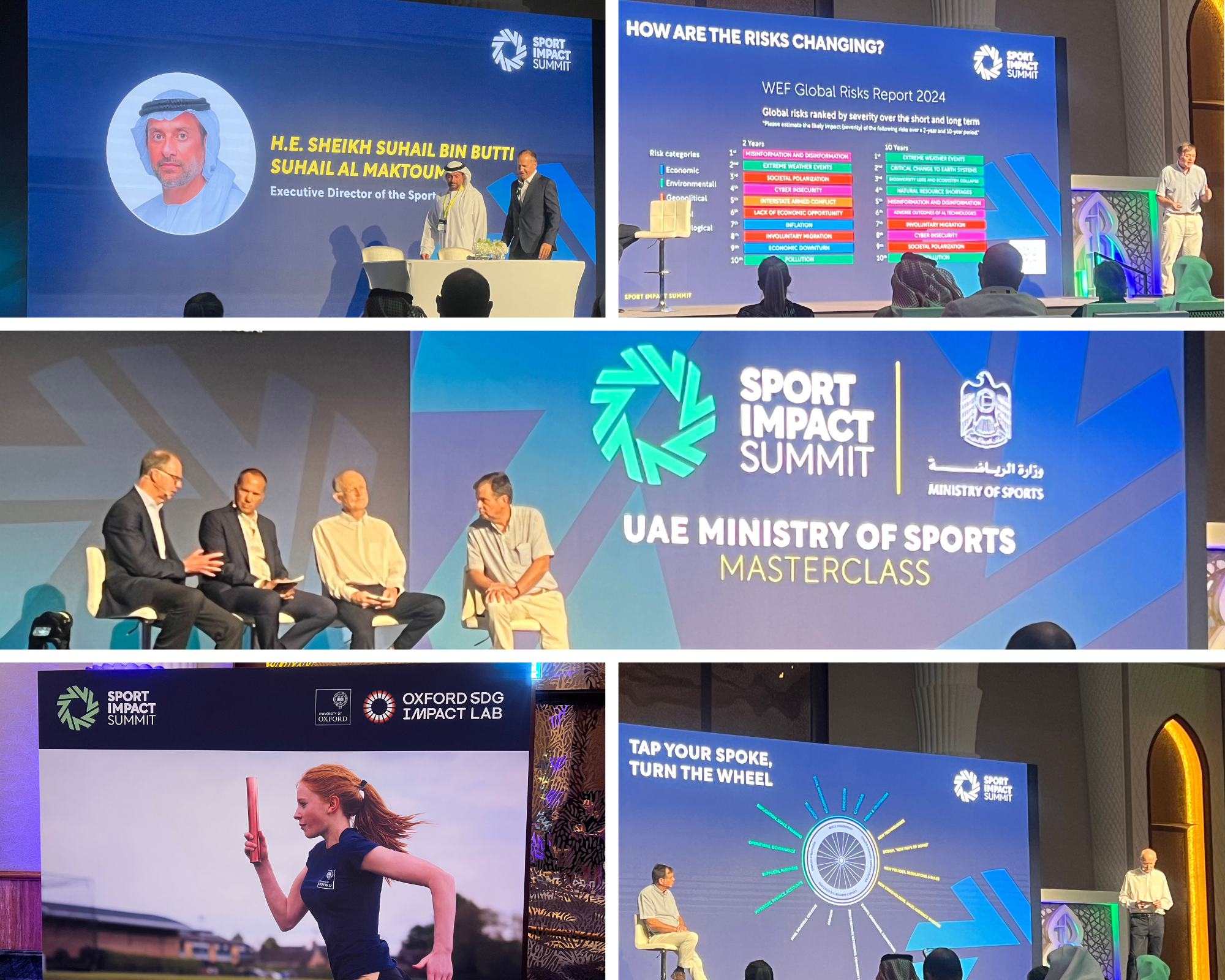
The afternoon came alive with The Changing Room, a series of engaging discussions exploring the powerful intersection of sport and sustainability. The Player Power Panel, featuring tennis champion Dominic Thiem, CEO of Thiem Energy, and Paralympian Lucy Shuker, delved into how athletes can leverage their platforms to inspire change, champion environmental awareness, and promote inclusivity in sport. Attendees also heard from Kim Wilson, Sustainability Director at McLaren Racing, who highlighted the integration of sustainable practices in motorsport, building on past research by Oxford SDG Impact Fellows. Representatives from Formula E showcased their all-electric platform, setting new benchmarks for sustainability in motorsport. A special talk with Fiona Morgan, Chief Purpose Officer at SailGP, focused on renewable energy and climate action, while Rory McFadyen, Co-Founder of Reflo, shared exciting innovations in eco-conscious sportswear. Together, these sessions underscored the importance of collaboration between athletes, organisations, and industries, demonstrating how sport can drive meaningful impact and inspire global change.
Atlantis Dubai, in collaboration with Goumbook, hosted a Biodiversity Tour that showcased the inspiring conservation efforts of the Atlantis Research Centre. Delegates explored initiatives like the Fish Hospital, which supports marine biodiversity through breeding programmes for species such as Arabian carpet sharks, and the on-site water bottling plant, a AED 1.2 million project eliminating 2.7 million single-use plastic bottles annually. Part of the Atlantis Atlas Project, these efforts highlight the power of partnerships in tackling environmental challenges and inspiring action.
Oliver Cook, Senior Programme Manager and former Team GB Rowing athlete was featured onTalk100.3UAE radio and social media, where he discussed the Lab’s work and its role in advancing sustainability through sport.
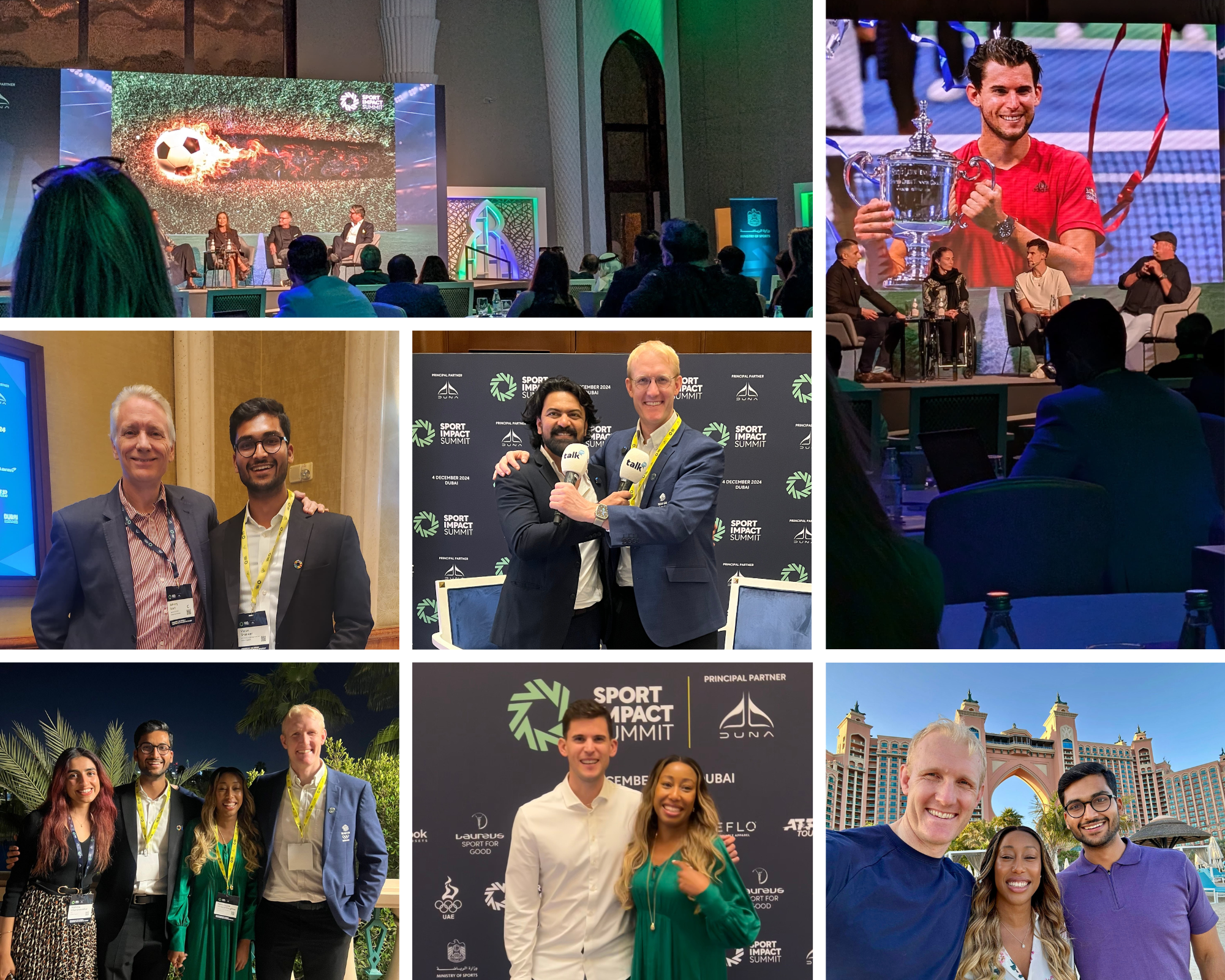
SEE Institute
Following the Sport Impact Summit, Kerri Louise joined Steven Whitely of MDR Mayfair, Dubai, and John Ingram and Ian Curtis from the Environmental Change Institute to visit the SEE Institute in Dubai’s Sustainable City. Completed in January 2023 after four years of construction, this 5,000-square-meter, net-zero carbon building is a global leader in sustainability, generating 300% of its energy needs through renewable sources and eliminating operational greenhouse gas emissions.
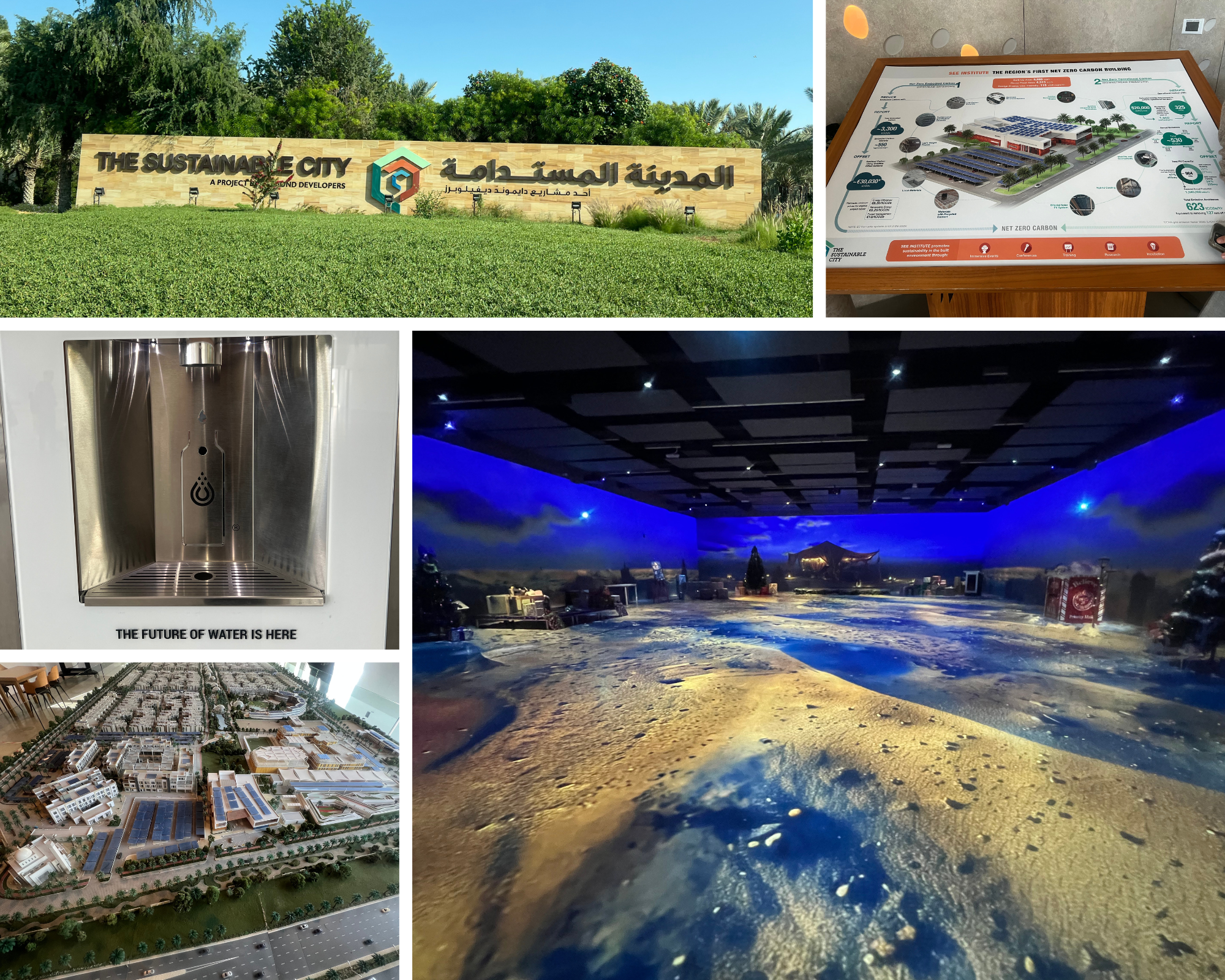
Hosted by Dr Jacinta Dsilva, Director of Research, and Anastasiia Onishchuk, Partnerships Manager and Visitors Relations and Living Lab, the group explored the Institute’s state-of-the-art facilities. Key highlights included the Living Lab, a dynamic space for experimenting with sustainable urban design, and the biodomes, which integrate advanced farming technologies to tackle local food security challenges. They were also introduced to Immersive Learning Space leveraging AR and VR technologies, as well as the Visitor Centre, which vividly illustrates the ambitious vision behind Dubai’s Sustainable City. The tour also highlighted the Institute’s role as an incubator for impactful projects like Alesca Technologies, which uses AI-powered vertical farming systems housed in repurposed shipping containers to produce fresh crops with 90-95% less water than traditional farming methods.
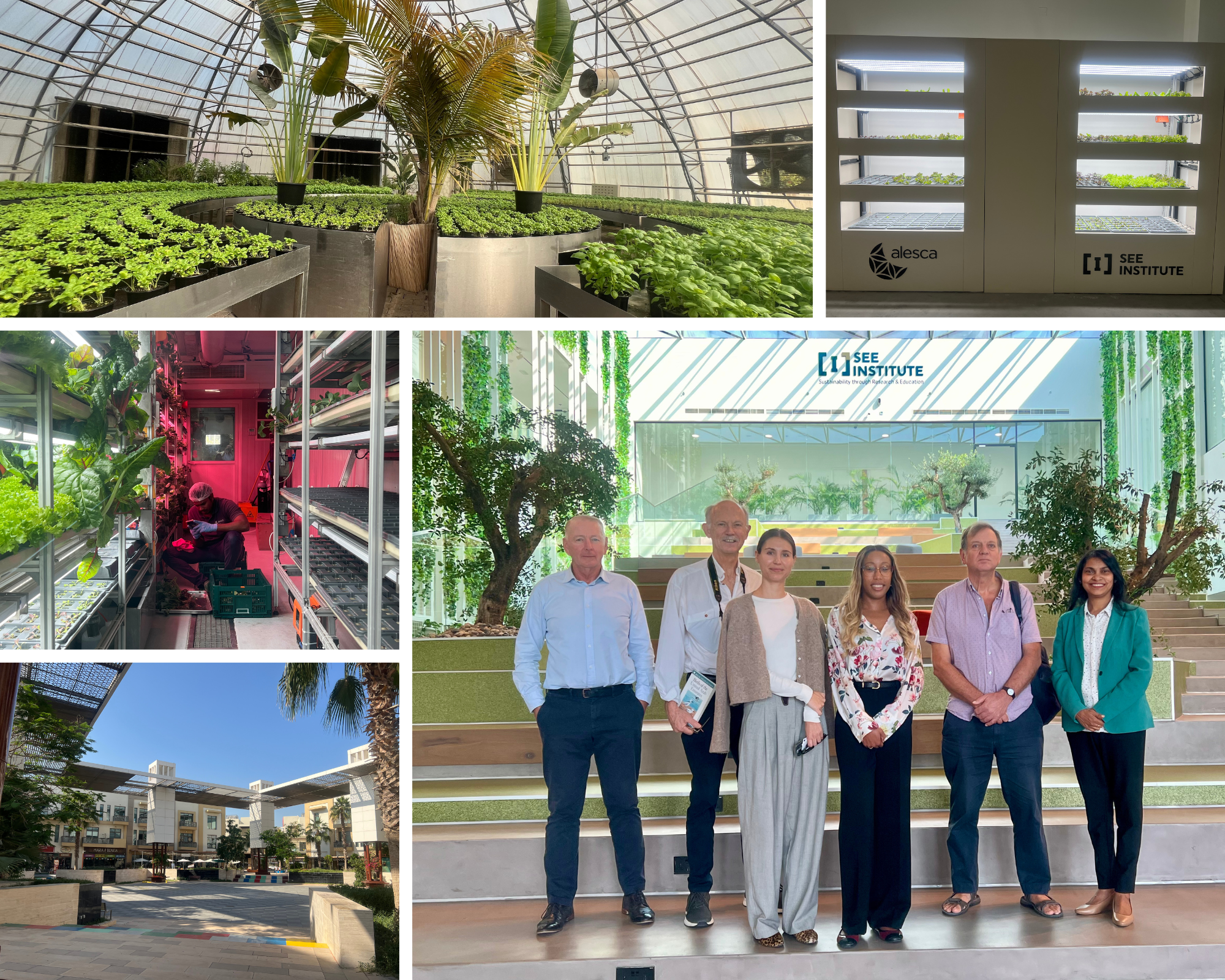
This visit underscored the SEE Institute’s dedication to advancing sustainability through education, research, and innovation. It offered a compelling demonstration of how collaborative partnerships can drive meaningful progress on a global scale.
In all it was a whirlwind of a couple of days for the Lab team in Dubai. In the space of their visit the team tried their hand at a new sport, appeared on local radio, networked and met key stakeholders, and showcased the work of the Lab to an international audience.


